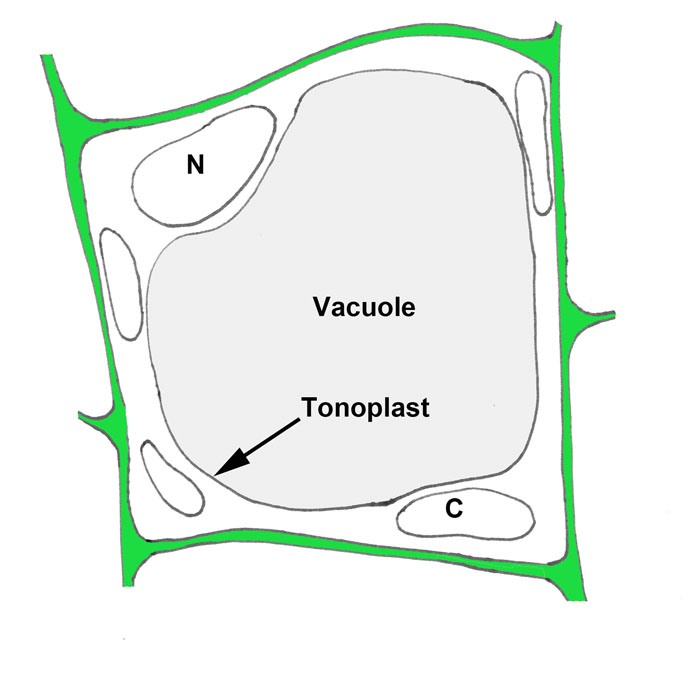
1.11 Vacuoles Biology LibreTexts
Vacuole royalty-free images. 3,181 vacuole stock photos, 3D objects, vectors, and illustrations are available royalty-free. See vacuole stock video clips. A mature cell vacuole. biology concept. Vacuole. Vector illustration of the basic structure of the plant cell. Plant cells are functional and structural units of all plant life under Kingdom.
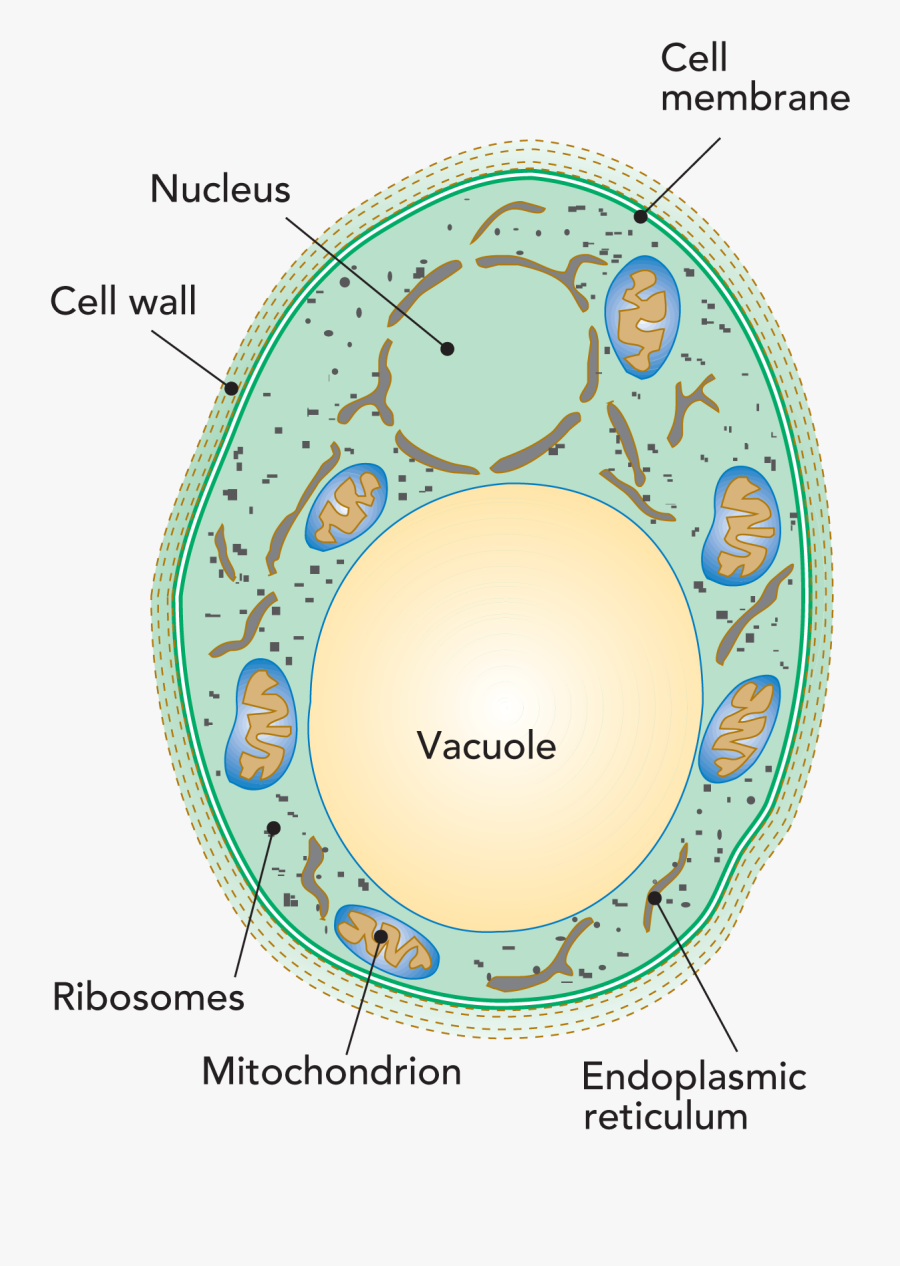
Diagram Of Vacuole In Animal Cell Nucleus Transparent Animal Cell
Vacuole Cell biology Animal cell diagram Components of a typical animal cell: Nucleolus Nucleus Ribosome (dots as part of 5) Vesicle Rough endoplasmic reticulum Golgi apparatus (or, Golgi body) Cytoskeleton Smooth endoplasmic reticulum Mitochondrion Vacuole Cytosol (fluid that contains organelles; with which, comprises cytoplasm) Lysosome

Central Vacuole / All these vacuoles support the size and shape of all.
vacuole, in biology, a space within a cell that is empty of cytoplasm, lined with a membrane, and filled with fluid. Especially in protozoa (single-celled eukaryotic organisms), vacuoles are essential cytoplasmic organs ( organelles ), performing functions such as storage, ingestion, digestion, excretion, and expulsion of excess water. The.
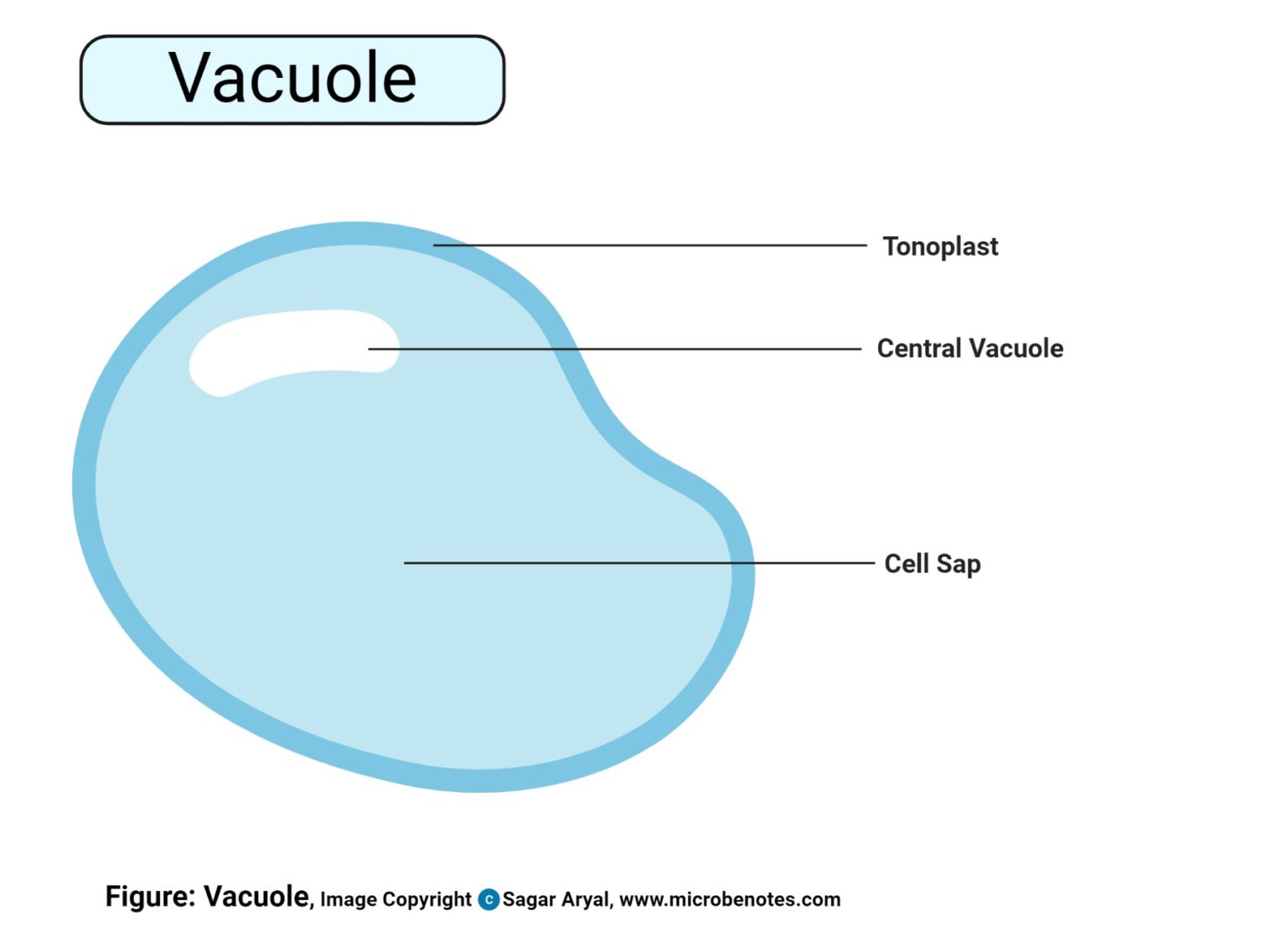
What Is The Structure Of A Animal Cell Scott Ovion1999
A vacuole is an organelle in cells which functions to hold various solutions or materials. This includes solutions that have been created and are being stored or excreted, and those that have been phagocytized, or engulfed, by the cell.
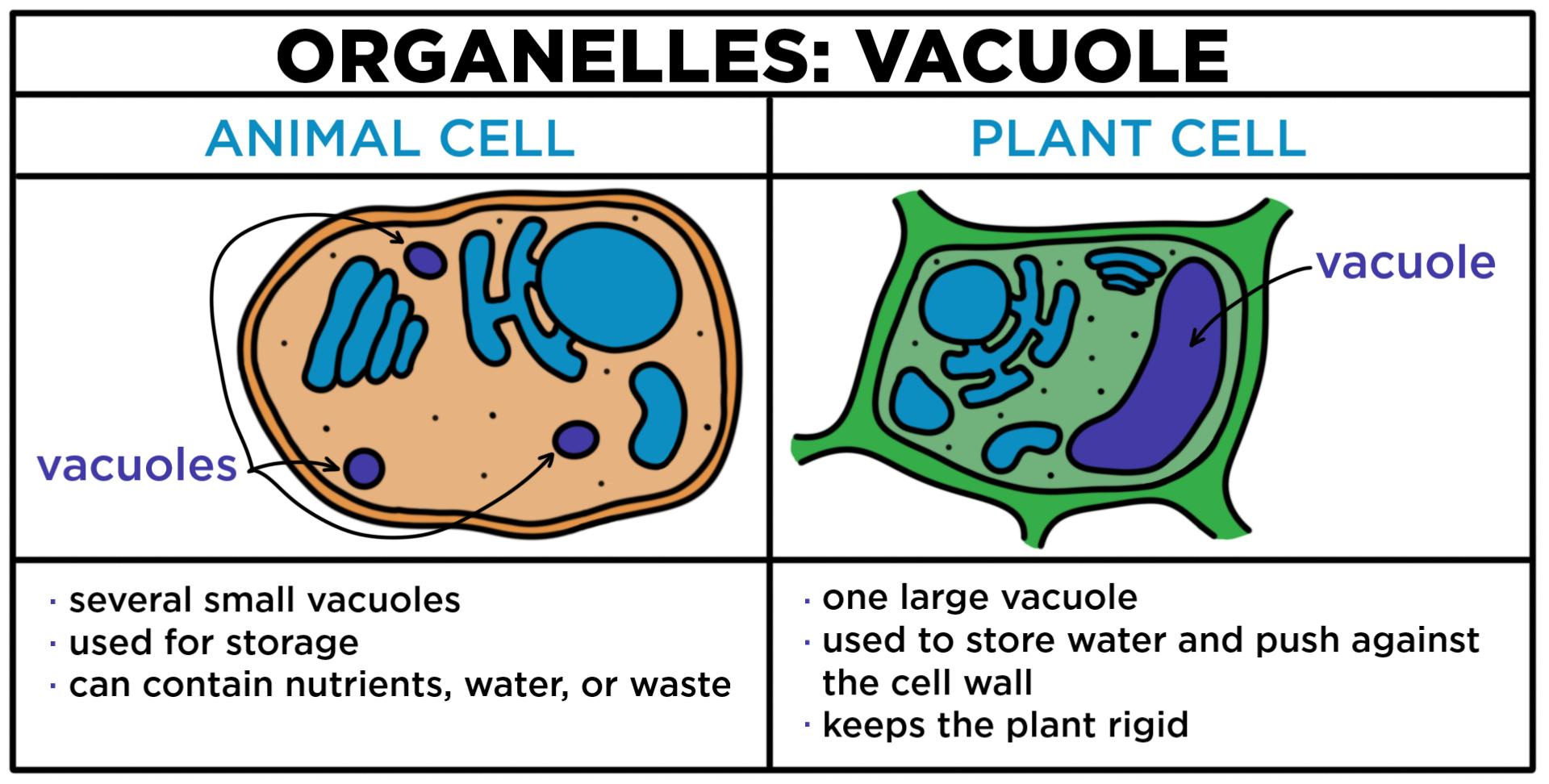
Plant Cell Vacuole
Vacuole. Biology Organelles drawing vector, colorful mitochondria, endoplasmic reticulum, golgi aparatus draing, science education biology student learning diagram ER cell Animal cell anatomy infographics with detailed educative diagram and labelled elements realistic vector illustration Biological vector of amoeba proteus diagram
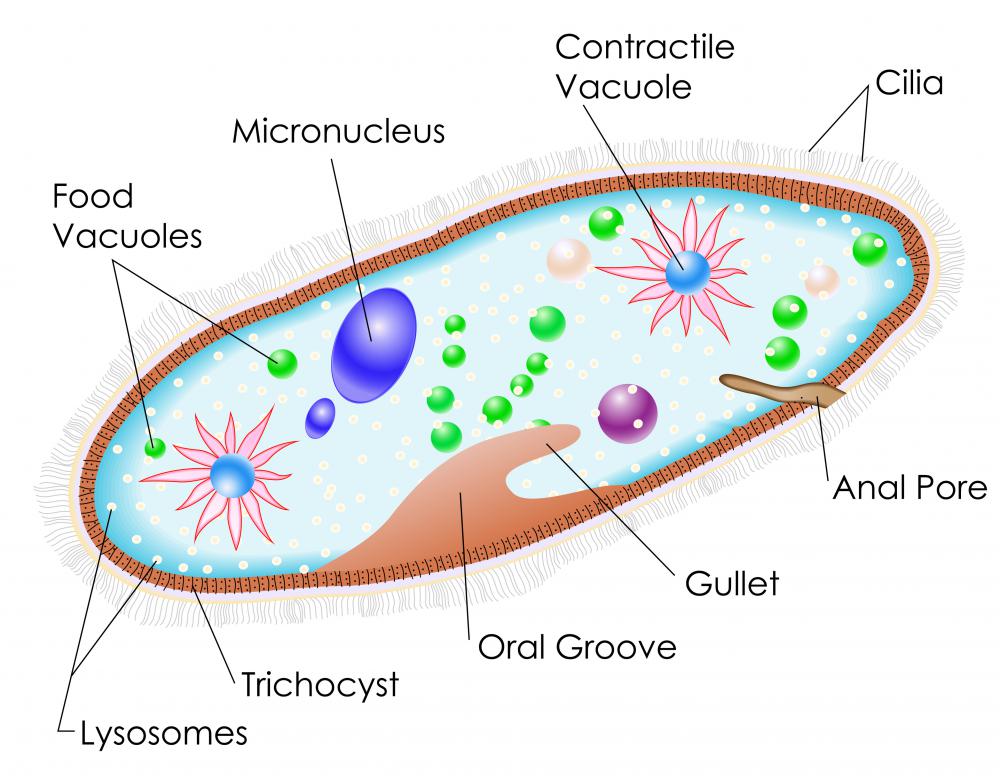
Function of food vacuole in amoeba
The central vacuole contributes to the plant's overall structure by drawing in water, inflating the cell to a turgid state (more on this in lab 5). Above is a cell from the aquatic plant Elodea. The cell wall, nucleus, and chloroplasts are visible. Draw a cell from the Azolla in the space below.
:max_bytes(150000):strip_icc()/2000px-Plant_cell_structure_svg_vacuole.svg-58a886443df78c345bf8d009.png)
An Introduction to Vacuole Organelles
Choose from Drawing Of Vacuoles stock illustrations from iStock. Find high-quality royalty-free vector images that you won't find anywhere else.
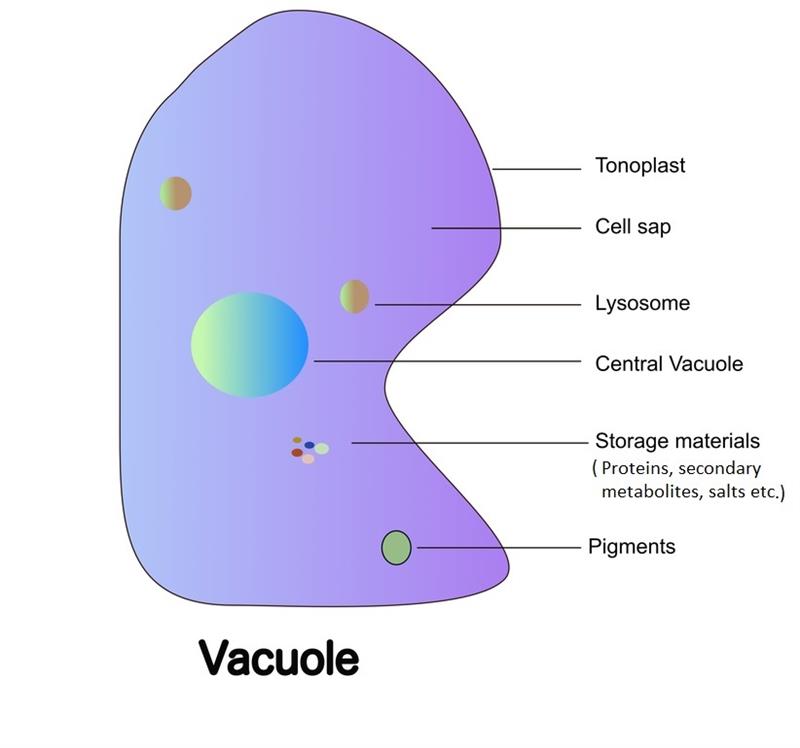
Vacuoles — lesson. Science CBSE, Class 9.
The plant vacuoles occupy more than 80% of the volume of the cell. The vacuoles may be one or more in number. Let us have a detailed look at the structure and function of vacuoles. Also Read: Cell Organelles. Structure of Vacuole. A vacuole is a membrane bound structure found in the cytoplasmic matrix of a cell.

Explain the structure of the vacuole.
Browse 120+ vacuole drawing stock illustrations and vector graphics available royalty-free, or start a new search to explore more great stock images and vector art. Sort by: Most popular Bacteria Seamless Pattern Seamless one color pattern with bacterias and infusorias. Editable vector illustration in unique hand-drawn style.

How to draw vacuole Labelled Biology Diagrams of vacuole by Hajong
A vacuole is a membrane-bound organelle that is present in all plant and fungal cells and some protist, animal and bacterial cells. The most conspicuous compartment in most plant cells is a very large, fluid-filled vacuole. Large vacuoles are also found in three genera of filamentous sulfur bacteria, the Thioploca, Beggiatoa, and Thiomargarita.

Vacuole Main Function In Plant Cell
The endomembrane system ( endo - = "within") is a group of membranes and organelles in eukaryotic cells that works together to modify, package, and transport lipids and proteins. It includes a variety of organelles, such as the nuclear envelope and lysosomes, which you may already know, and the endoplasmic reticulum and Golgi apparatus.
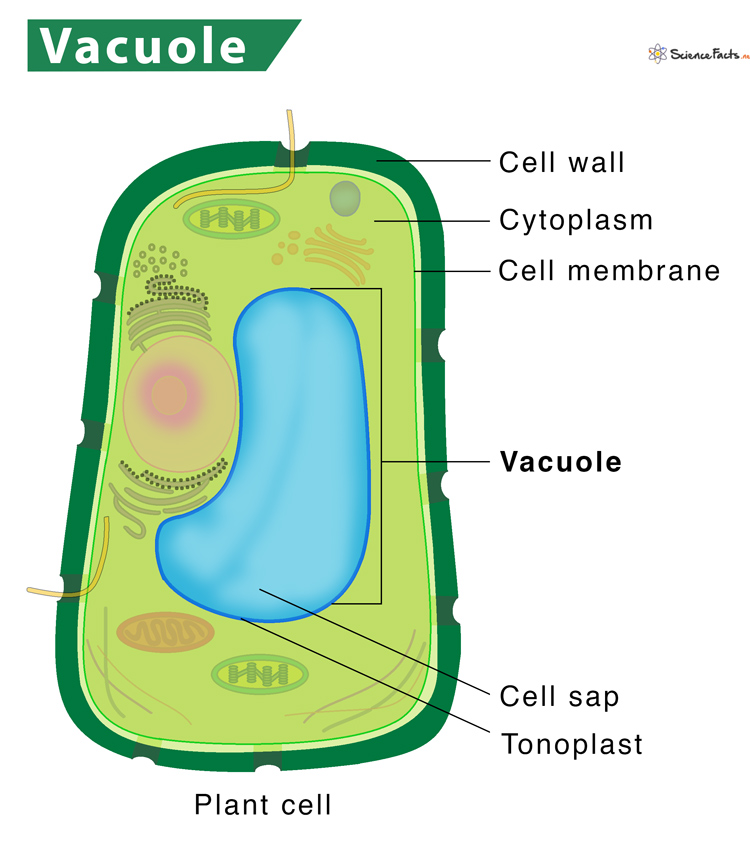
Top 156 + Vacuole in animal cell diagram
This basic structure of a plant cell is shown below - the same plant cell, as viewed with the light microscope, and with the transmission electron microscope. Animal and plant cells have certain.
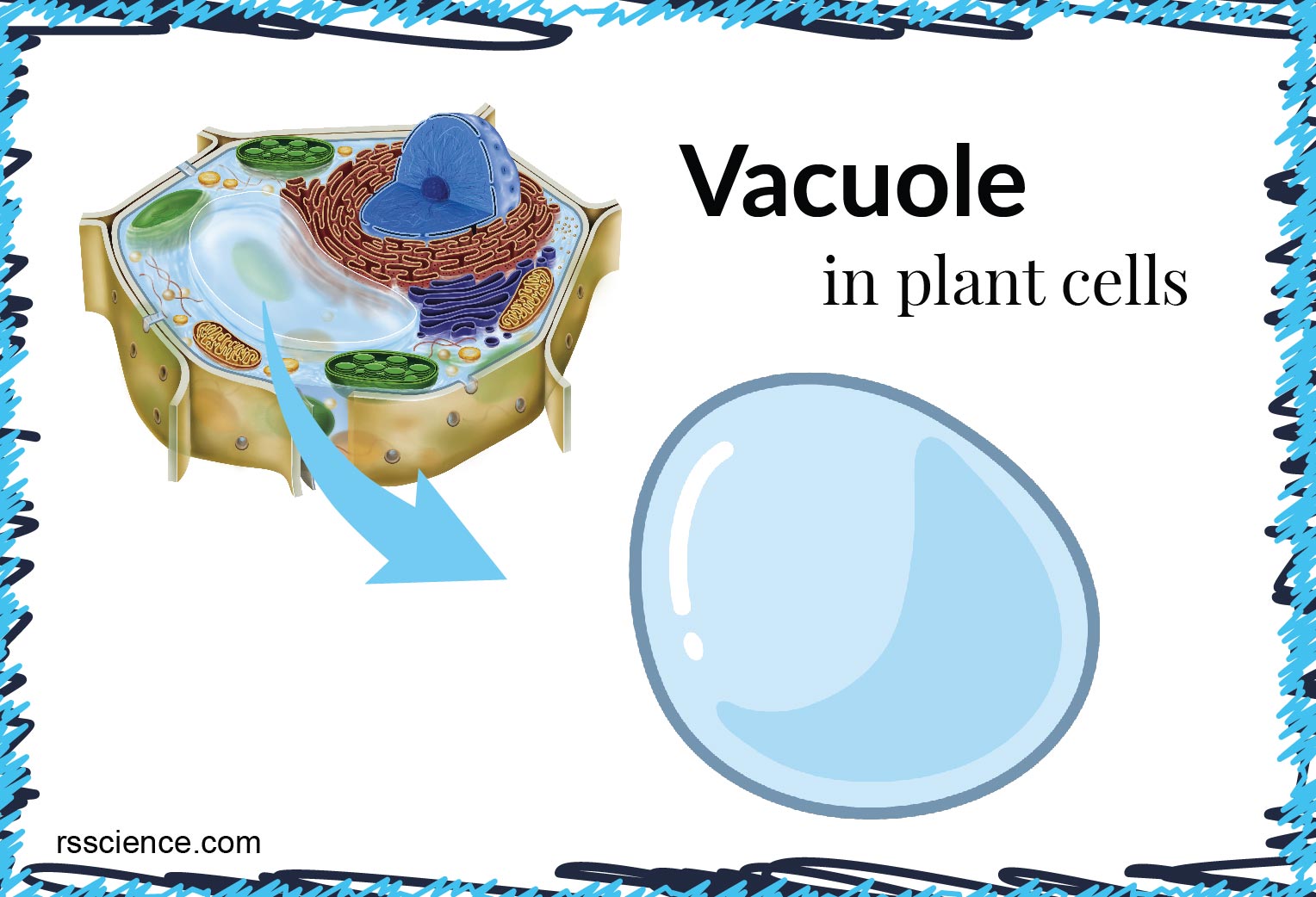
Vacuole Function and Structure Extra Space Storage Rs' Science
Vesicles and Vacuoles. Vesicles and vacuoles are membrane-bound sacs that function in storage and transport. Vacuoles are somewhat larger than vesicles, and the membrane of a vacuole does not fuse with the membranes of other cellular components. Vesicles can fuse with other membranes within the cell system ( Figure 5.11.1 5.11. 1 ).
Plant Cell Drawing Plant Cell Structure And Parts Explained With A
A vacuole is a membrane bound, multifunctional organelle found in the cells of plants (including algae and fungi) and some protists and bacteria. Vacuoles are acidic in nature and share some basic properties with lysosomes that are predominantly found in plant cells. Depending on the type of plant, there are different types of vacuoles with.
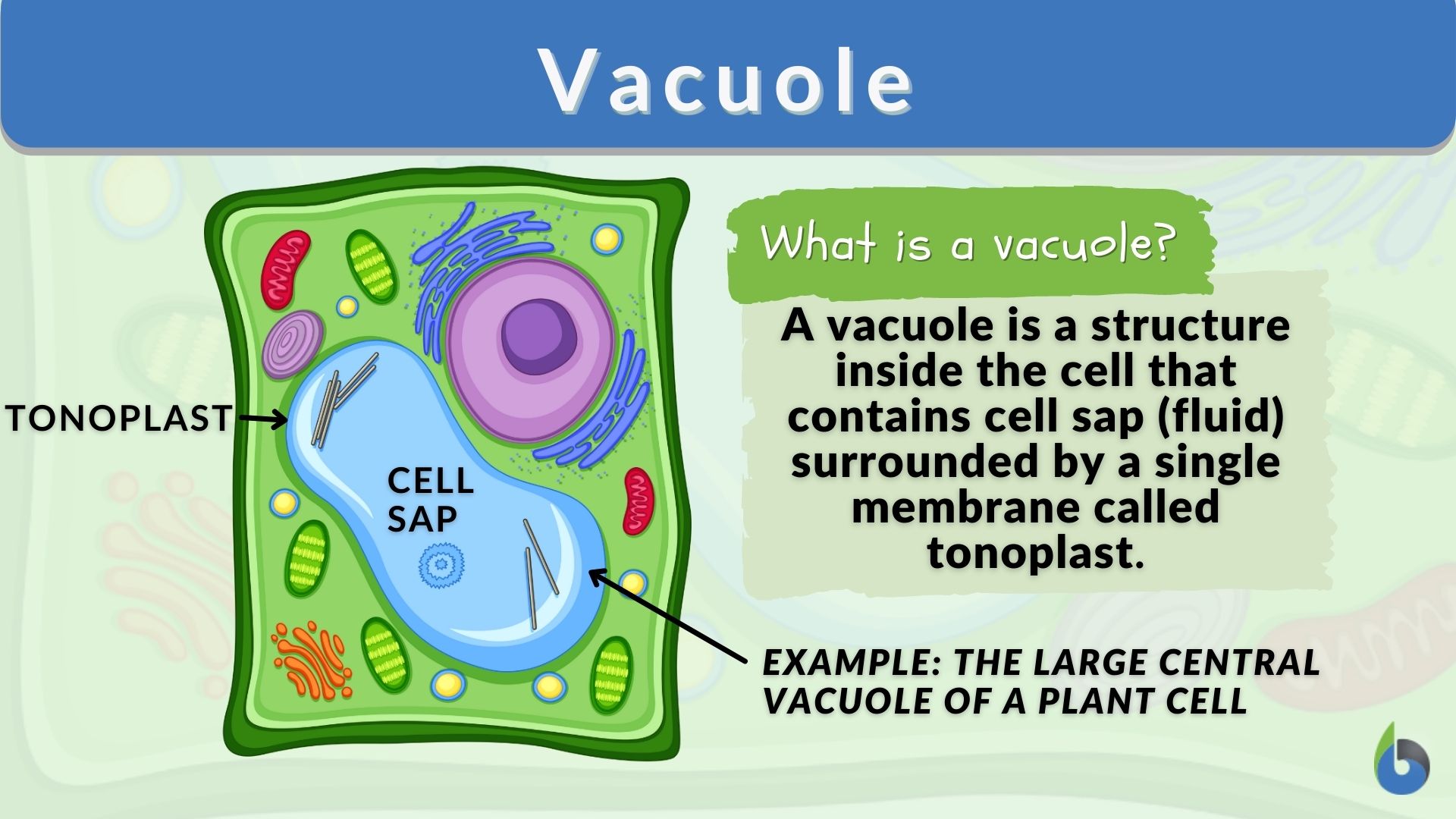
Vacuole Definition and Examples Biology Online Dictionary
The vacuole: Plant cells contain at least one large vacuole to maintain the cell's shape, while animal vacuoles are smaller in size. The centriole: Animal cells have one; plant cells don't. Chloroplasts: Plant cells have them; animal cells don't. The cell wall: Plant cells have an outer cell wall; animal cells simply have the plasma membrane.

Is There A Vacuole In An Animal Cell Vacuoles in All Cell Organisms
Figure 10.1.5 10.1. 5: A micrograph of a cell nucleus. The nucleolus (A) is a condensed region within the nucleus (B) where ribosomes are synthesized. The nucleus is surrounded by the nuclear envelope (C). Just oustide the nucleus, the rough endoplasmic reticulum (D) is composed of many layers of folded membrane.